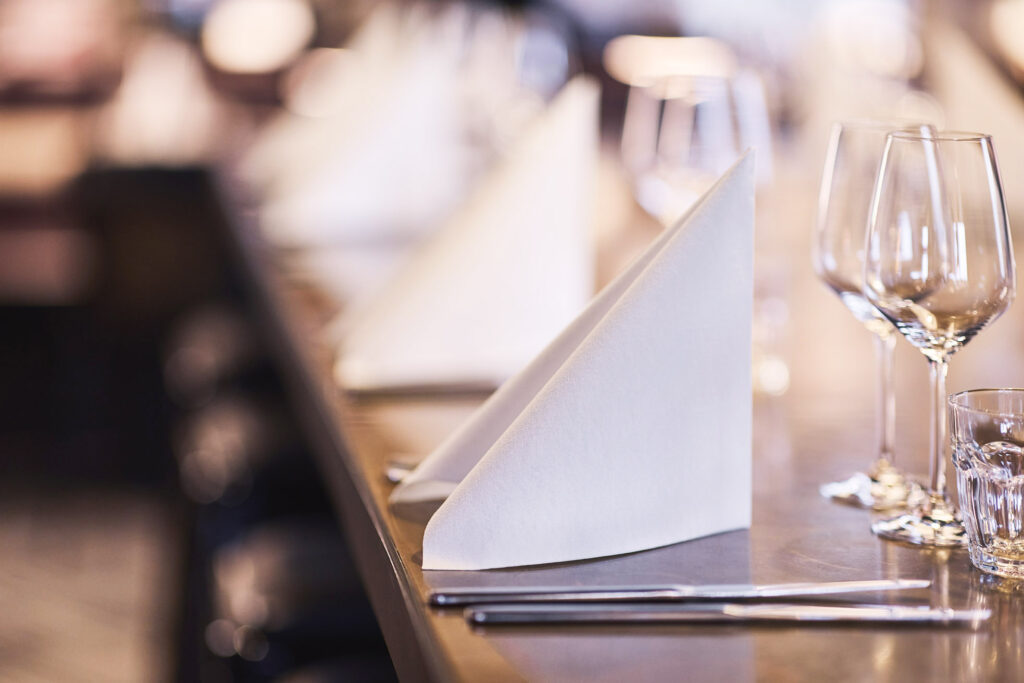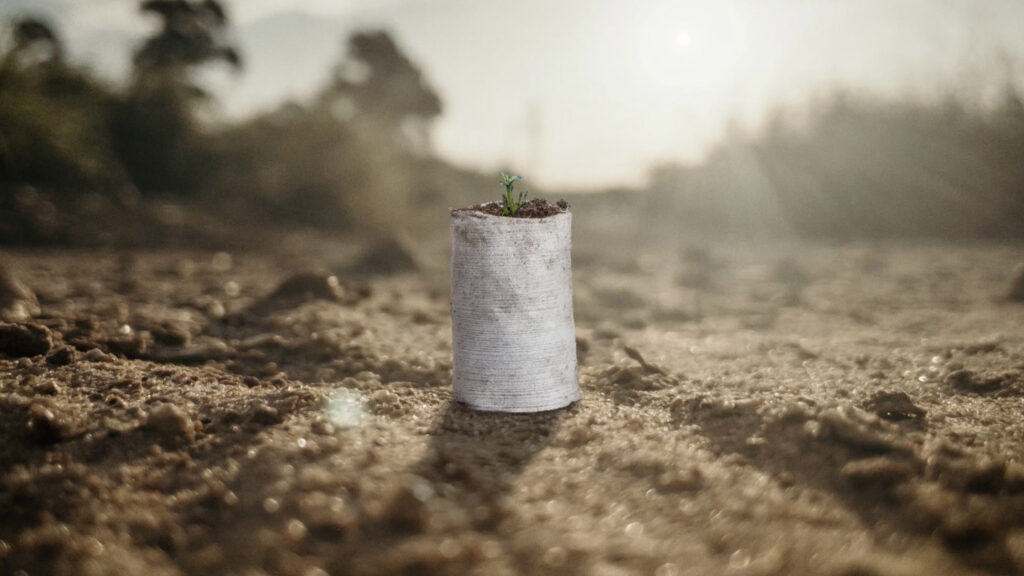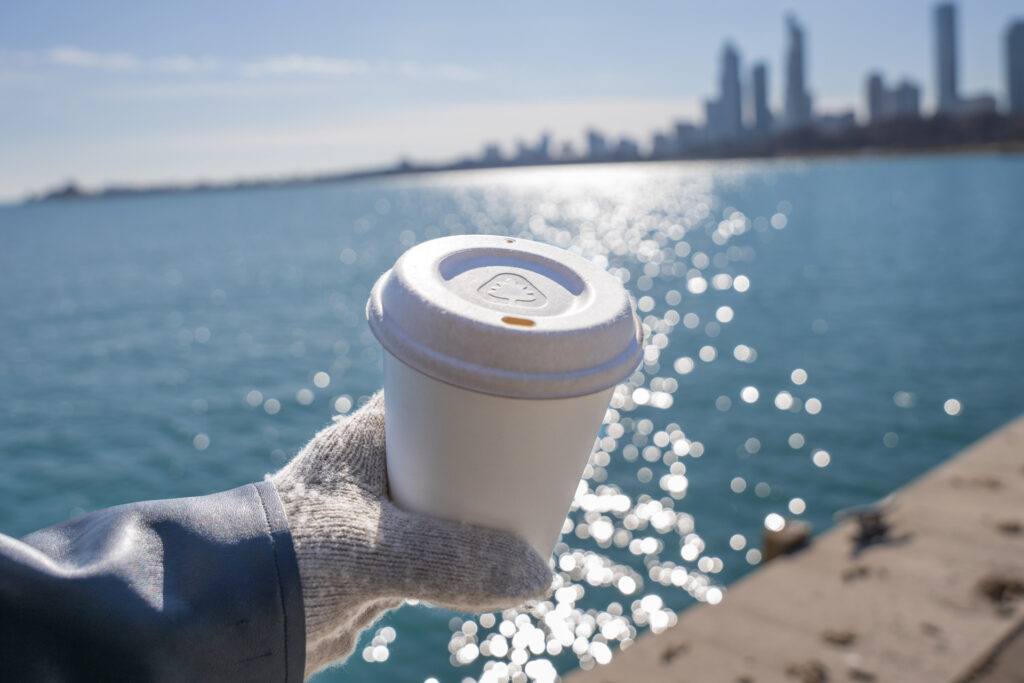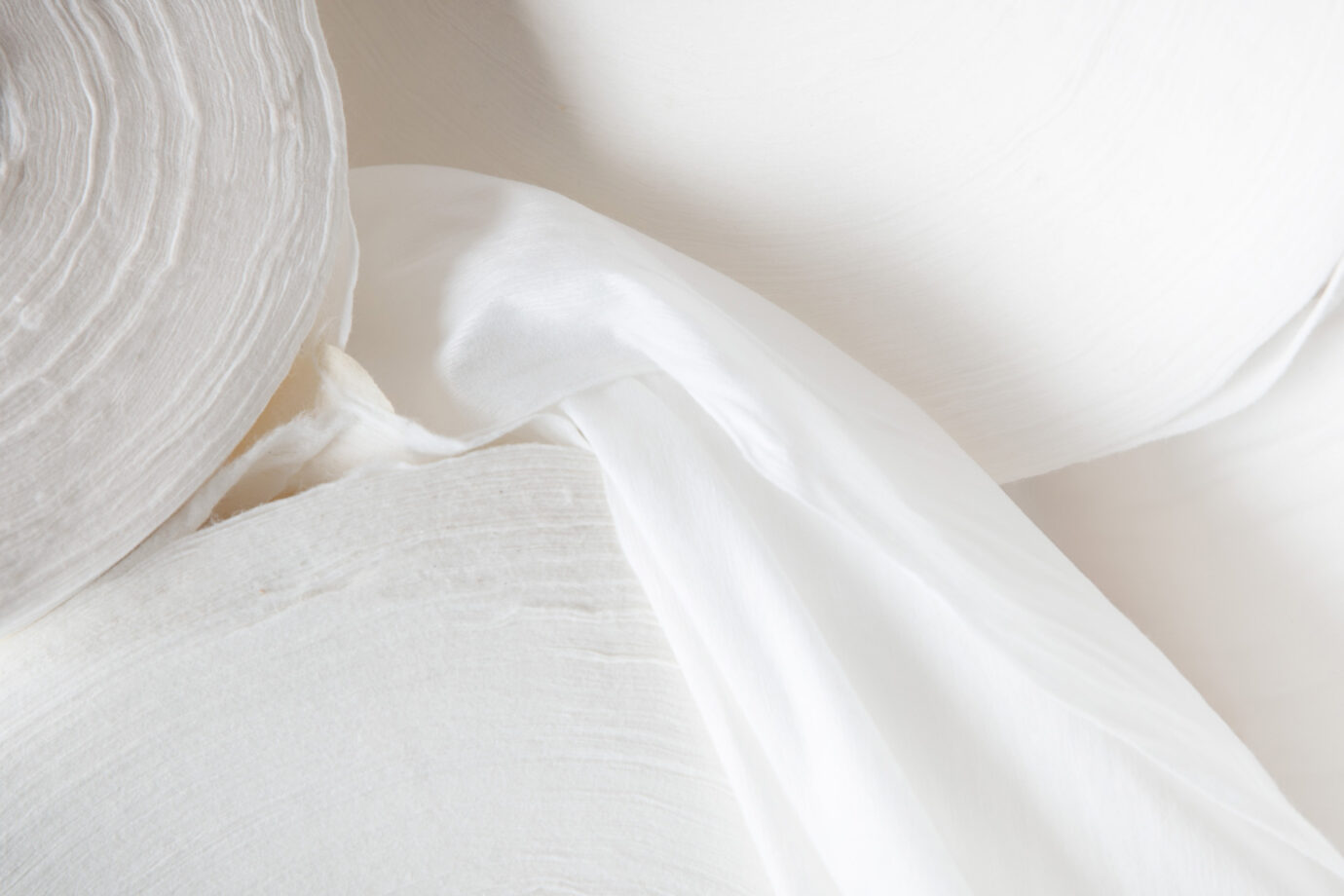
Biobased and biodegradable binders
OrganoClick is supplying 100% biobased and biodegradable binders for nonwovens and technical textiles under the trade name OC-BioBinder®. Our binders are based on biopolymers from residual streams in the food industry such as orange peels, shrimp shells and wheat bran. With the help of our biobased binders, nonwovens and technical textiles can become fossil-free, biodegradable, home compostable, and completely free of any plastics including microplastics.
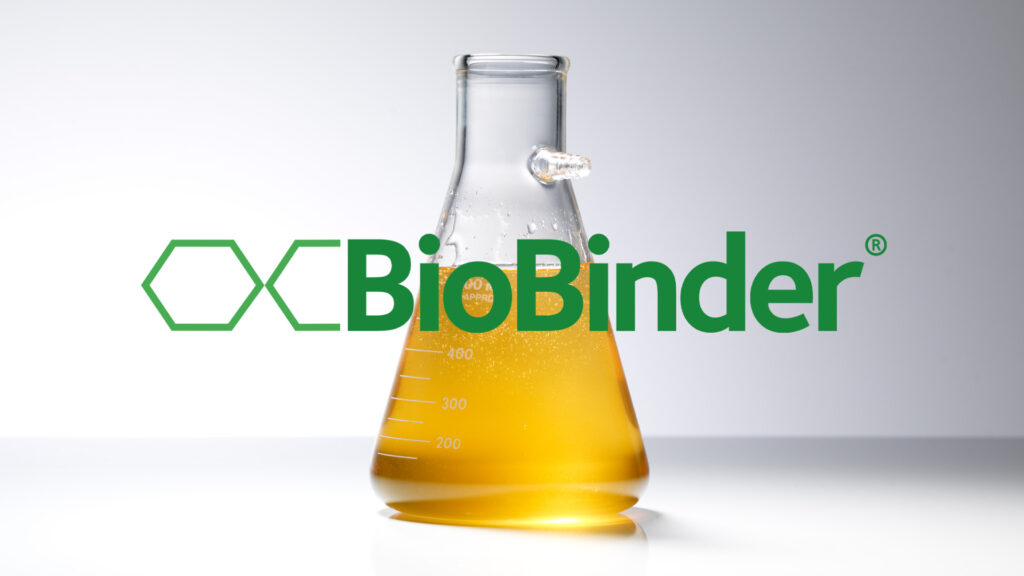
Product range
Binders are used to improve the mechanical properties of nonwovens and technical textiles. Properties that can be improved are dry strength, wet strength and dimensional stability with varying degrees of stiffness or softness. We offer a number of different biobased and biodegradable binders that can replace fossil plastic binders in nonwoven and technical textiles. Our binders are classified as being “readily biodegradable” according to OECD 301A, and can be used to produce home compostable nonwovens certified with TÜV OK Compost Home.
Our binders are named after their inherent properties where the Lily-grades are soft binders, the Clover-grades are medium-soft binders and Oak is stiff binders. The Lotus-grades are our binders with hydrophobic character.
Technical specifications
The binders are available in varying degrees of softness or stiffness (Tg), with different degrees of dry and wet strength. In our product range we have both hydrophilic and hydrophobic binders. The binders have different viscosities and can therefore be applied to nonwoven or textile materials in different ways. Our binders are water-based and are applied to materials by spray impregnation, dip impregnation or coating. After application, the fibre-based material is dried and cured at elevated temperatures.
See the table below for more details about our binders and their technical properties. From the table, you can download Technical Data Sheets and Safety Data Sheets as PDFs.
| OC-BioBinder® product | Softness / Stiffness | Dry strength | Wet strength | Character | Typical applications | Data Sheet | Sustainability / Environmental certifications |
| Lily 1450S | Soft | ++ | ++ | Hydrophilic | Tabletop, hygiene, linting | TDS SDS | 100% biobased, Readily biodegradable (OECD 301A), TUV OK Compost Home, Food contact approved (BfR XXXVI) |
| Lily 1450WS | Soft | +++ | +++ | Hydrophilic | Wetwipes, washable items, food pads | TDS SDS | 100% biobased, Readily biodegradable (OECD 301A), Food contact approved (BfR XXXVI) |
| Clover 1151TS | Medium | ++ | Hydrophilic | Embroidery backings | TDS SDS | 100% biobased, Readily biodegradable (OECD 301A), Food contact approved (BfR XXXVI) | |
| Oak 3303S | Very stiff | +++ | +++ | Hydrophilic | Wet strength additive for wetlaid nonwovens | TDS SDS | 99% biobased, Readily biodegradable (OECD 301A), Food contact approved (BfR XXXVI) |
| Lotus 5451S | Stiff | ++ | +++ | Hydrophobic | Agricultural nonwovens, wallpaper | TDS SDS | 100% biobased, Readily biodegradable (OECD 301A), Food contact approved (BfR XXXVI) |
Customer Cases
Our binders are adapted for several different nonwovens and specialty papers such as airlaid, wetlaid, and carded nonwovens as well as woven or knitted textiles. They have mainly been developed for use with cellulosic fibers such as natural fibres from wood pulp, cotton, flex, and hemp, and manmade cellulosic fibers such as viscose and Lyocell but can also be used with other biobased fibers such as wool and PLA.
Today, our binders have been implemented and are used in airlaid nonwovens for napkins and wipes; wetlaid nonwovens for agricultural textiles and hygiene products, and in knitted textile interlinings.
Read about some of the applications here:
Brochure Plastic-Free Binders
Brochure/Presentation – Plastic-Free Binders


